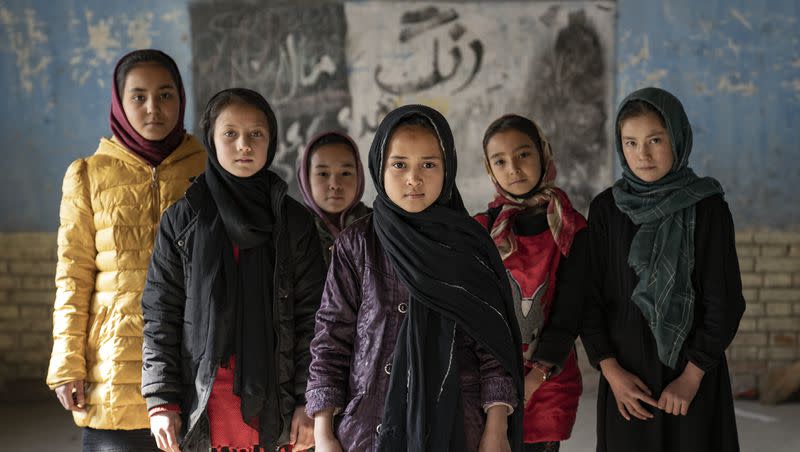The Taliban’s top leader is under pressure for his strict ban on women’s education

- Oops!Something went wrong.Please try again later.
- Oops!Something went wrong.Please try again later.
American women may struggle to imagine having to receive an education in secret and illegally. That is the reality for women in Afghanistan.
A year ago, the Taliban reinforced their ban on additional education for female students after the elementary school level. Hibatullah Akhundzada, the Taliban supreme leader, brought back the strict education policies that have not been the law since the 1990s.
Although it’s obvious that the majority of people worldwide disagree with this ban, less obvious is that leaders of the fundamentalist group are under pressure from followers within their own movement, as well.
“If yesterday we were harsh against the enemy, today we are soft towards our people,” Interior Minister Sirajuddin Haqqani said in a speech in February, expressing his criticism of the ban. “It is not our aim to be a dictator and rule the people in such a way that they suffer under us.”
According to The Wall Street Journal, ministers close to the Taliban leader are saying they are not opposed to women getting an education, but are suspending it because the “school curriculum needed to be cleansed of elements that didn’t reflect Islamic values.”
Related
Mullah Yaqoob Mujahid, the Taliban’s defense minister and son of Taliban founder Mullah Mohammad Omar, said, “We should always listen to the legitimate demands of the people,” in regard to the strict education policy.
The result is that after girls complete elementary education, they now have to meet secretly to receive an education or listen to educational broadcasts.
A teacher interviewed by The Wall Street Journal said, “If we stop teaching, learning, it is like we are dead. I want to be alive.” She went back to school following the end of the Taliban’s first rule. “If this is a crime, I want to commit it.”
The underground schools that are all over the country were started to help girls progress i their educational studies and give them hope for their futures, the article said. A young 13-year-old girl named Yalda told the publication that she dreams of becoming an engineer but is afraid that the ban will prohibit her from making it a reality.
Some teachers shared that Taliban leaders have become aware of the schools but have not shut them down. For those that have internet access, radio broadcast learning has been their source of education.
“Radio Begum, a Kabul-based radio station, has changed its programming to accommodate Afghan girls who want to learn by including six hours of school classes daily. The Afghan radio station also trained teachers to make their voices more compelling and brought a few girls into their studio to participate in the production and respond to the teachers,” International Business Times said.
Afghanistan is the only country that bans women from receiving a secondary education. Political leaders worldwide are negotiating with the Taliban to bring back the progress towards women’s rights that the country had made when the Taliban was not in power.

